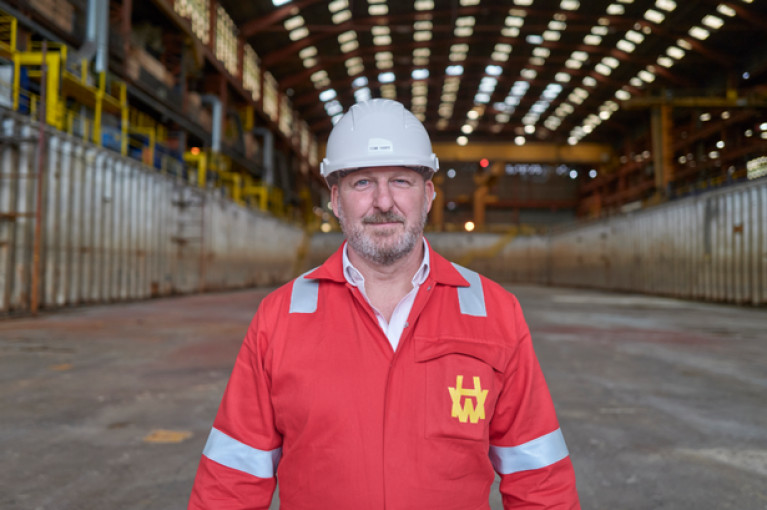Displaying items by tag: New GM
H&W Appoints New General Manager at its Appledore Shipyard
Belfast's iconic Harland & Wolff shipyard, has announced the appointment of a new General Manager, Tom Hart to its Appledore shipyard in England, which was acquired a year ago.
Bringing over 30 years of experience in project, operations and construction management throughout the United Kingdom and United Arab Emirates, Mr Hart joins Harland & Wolff (Appledore) from Dubai based, Drydocks World where he was Director of Projects & Engineering.
He joins after the site has enjoyed major investment and upgrades since the InfraStrata plc acquisition and is now fully operational.
Mr Hart began his career in the Merchant Navy as a cadet before moving to P&O Ferries, where he rose through the ranks from Marine Engineer to Chief Engineer.
Moving shore-side, he then headed to the UAE to join Dubai Drydocks as a Ship Repair Manager. During his time in Dubai, Mr Hart moved from drydocks into the oil and gas industry, where he project managed new-build jack-up oil rigs and offshore wind turbine installation ships with MIS & Lamprell Energy. He also held various other positions such as Commissioning Manager and Group Operations Manager, where he ran three shipyards.
Mr Hart then returned to Dubai Dry Drydocks for a final two-year stint as Director of Project Management & Engineering.
Now in his role as General Manager, based in Appledore, North Devon, Mr Hart will be responsible for the overall day-to-day running of the site. This includes the organisation and logistics for all incoming projects, site safety and security as well as overseeing all monetary aspects.
Tom Hart commented: “Leaving Dubai to move “home” after 20 years was a huge decision but one that I, along with my family, are very excited about. I’m really looking forward to settling in at Appledore, and hope to share some great practices, and skills I have gained from my international experience to build up British shipbuilding and ship repair and be a part of its revitalisation. Building up business, creating work for the local community and increasing the yard’s revenue and margins with a steady flow of work will be my main goal. I am delighted to be appointed General Manager of Harland & Wolff (Appledore) – a yard with a very impressive history. I am looking forward to leading the team there and collectively bringing success to the Harland and Wolff Group.”
Harland & Wolff is a multisite fabrication company, operating in the maritime and offshore industry through five sectors: commercial, cruise and ferry, defence, oil & gas and renewables and six services: technical services, fabrication and construction, decommissioning, repair and maintenance, in–service support and conversion.
Its Belfast yard is one of Europe’s largest heavy engineering facilities, with deep water access, two of Europe’s largest drydocks, ample quayside and vast fabrication halls.
As a result of the acquisition of Harland & Wolff (Appledore) in August 2020, the company has been able to capitalise on opportunities at both ends of the ship-repair and shipbuilding markets where this will be significant demand.
In February 2021, the company acquired the assets of two Scottish based yards along the east and west coasts. Now known as Harland & Wolff (Methil) and Harland & Wolff (Arnish), these facilities will focus on fabrication work within the renewable, oil and gas and defence sectors.
Harland & Wolff is a wholly-owned subsidiary of InfraStrata plc (AIM: INFA), a London Stock Exchange-listed firm focused on strategic infrastructure projects and physical asset life-cycle management.
In addition to Harland & Wolff, it owns the Islandmagee gas storage project, which is expected to provide 25% of the UK’s natural gas storage capacity and to benefit the Northern Irish economy as a whole when completed.





























































